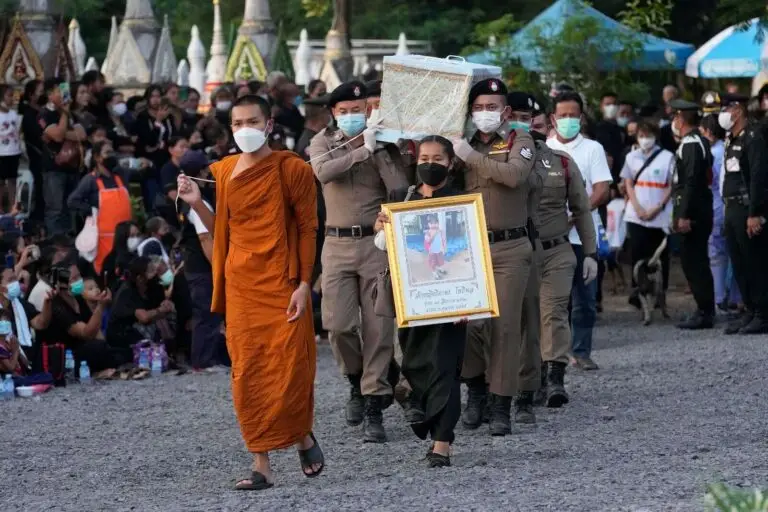BANGKOK, Thailand – Authorities in Thailand have launched an investigation into unconventional practices at Buddhist monasteries following the discovery of dozens of human remains reportedly used as part of meditation rituals.
At the Pa Nakhon Chaibovorn monastery in Phichit province, police uncovered 41 cadavers on Saturday, each accompanied by death and body donation certificates. Investigators are verifying whether all donations were consensual and lawful.
“We are contacting families to ensure that none of these bodies were stolen,” a senior police official stated under anonymity, noting that no charges have yet been filed.
The revelation follows a similar case earlier in the week in Kamphaeng Phet province, where 12 bodies were discovered in another monastery. Local media reports suggest that both cases involve meditation techniques developed by senior monks, sparking public and legal debate.
Phra Ajarn Saifon Phandito, the head of the Phichit monastery, defended the practice in interviews with Thai media. According to him, the corpses were integral to a unique meditation method designed to foster deep contemplation among practitioners, including abbots and monks from across the region.
“Practitioners meditate in pavilions holding coffins with human remains,” he told one local television station, describing the technique as a path to enlightenment. “I cannot say how many have adopted my approach.”
Thai authorities are now coordinating investigations across multiple provinces to determine the extent of these practices and their adherence to legal and ethical standards. The use of human remains in religious or spiritual practices is a sensitive topic, raising questions about cultural traditions, donor rights, and public safety.
While no formal accusations have been made, the discoveries have triggered widespread discussion in Thailand, a predominantly Buddhist country where religious rituals are often deeply intertwined with cultural norms.
As investigations continue, the findings are likely to spark broader conversations about the balance between preserving tradition and ensuring accountability in religious practices.

